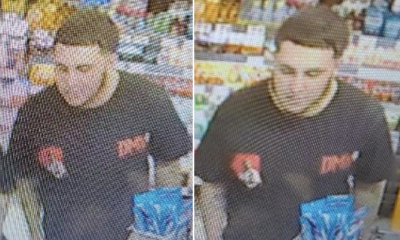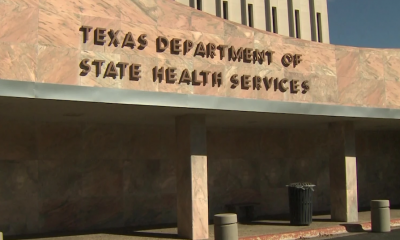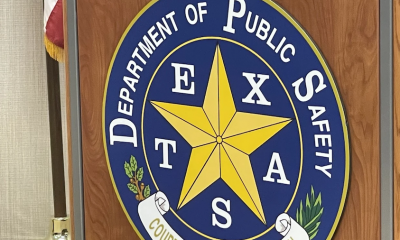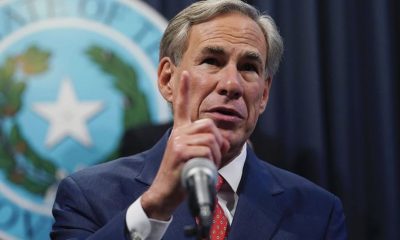U.S. News
A Nightlife Mayor of Dallas? 24HourDallas Wants the City To Respect Its Nightlife
DALLAS, TX – Five years ago, Randall White was involved in a conflict between residents and businesses regarding City Hall ordinances that impacted business and nighttime operations in Uptown. At the time, White, a public policy advocate, had been hired to mitigate the parties. This wasn’t just a Dallas issue. In fact, he discovered a global network of what were colloquially known as nighttime mayors, in locations as prominent as Washington D.C. and New York City. They educated him on how to resolve the issue. Now, he has become one of the main voices advocating for the city’s nightlife culture through 24HourDallas, a nonprofit focused on Dallas’ nightlife economy.
Its mission to create a “safe, vibrant, and diverse nighttime culture for businesses, residents, and guests” is reflective of the global nighttime economy’s mindset of creating a safe and prosperous 24 hours for all. With over 50 offices across the world—they’re in Amsterdam, Berlin, Mumbai and London and stateside in Austin, Detroit, Iowa City, Orlando, Pittsburgh, NYC, and D.C.—the global movement is spearheaded by individuals, organizations, and a few municipal governments charged with advancing and maintaining their nightlife scenes.
White welcomed a few of these representatives in a Zoom call Wednesday evening. Ariel Palitz, the nightlife mayor of New York City, the largest chapter in the country, spoke about her office’s approach toward the nightlife economy. Her audience included the local nonprofit’s board members, city officials, and leaders of cultural and nonprofit organizations here and abroad. Last night, I attended the meeting to learn about the 24HourDallas efforts to replicate New York’s success, even if it may not be part of the city’s payroll.
Palitz wants you to think of hours between 6 p.m. and 6 a.m. like the other 9 to 5. She further defines the industry as “an economic engine, creator of jobs, tax revenue, and culture.” She drew comparisons to the complementary businesses that benefit from people going out. From the boutiques that specialize in club wear to “taxi drivers and pizza parlors” (very New York), she emphasized the intersection of apparel, dining, and entertainment industries to prove the shared nature of nightlife’s economy, that it doesn’t begin when the sun goes down. She argues that this industry is essential to our society.
“I think this pandemic has very successfully illustrated what life looks like without life at night,” she said, referencing the rampant club and venue closures across the nation. In Dallas, we heard from DJs about the closure of Beauty Bar in Deep Ellum. They spoke about their profession and the immediate absence of employment opportunities. Last summer, the nonprofit arts organization Aurora established a financial relief fund for artists who lost income due to exhibition closures. Ideally, a “nightlife mayor” (or something similar, with a different name) would advocate and create policies to assist individuals and small businesses impacted by these venue closures. Without a place to play, some can’t make a living.
Palitz’s belief—which is shared by White—is to reimagine nightlife as a driving force of economic, racial, social, and political change. In New York, Palitz works to develop universally-accepted policies to address racist attendance and dress code rules. She also takes on sexual harassment in clubs and bars. Although racial equity is one of 24HourDallas areas of focus, White did not speak about the organization’s efforts to address racism in the nightlife industry, something that has been alive and well in the door policies at some Dallas clubs in the past. However, he emphasized the industry’s ability to lead change in their respective areas, perhaps even faster than such policies in larger industries like real estate or commercial business.
I left the meeting with several unanswered questions. Will the city commission an economic study of Dallas nightlife? Are local activists involved in the racial equity group? How is nightlife going to address a plethora of social issues? Where is the youth involvement? According to a city spokeswoman, there isn’t any formal economic study planned around the city’s nightlife industry. And, partly because of the pandemic, it doesn’t appear a “nightlife mayor” is among the city’s hiring plans. Staff will brief the City Council on April 21 regarding the American Recovery Act and “what might be flowing our way.” But other similar positions haven’t been city employees.
On April 5, the city will hear broader plans to help spur recovery. A briefing about federal help will come later in the month.
“As economic development in all sectors is key to Dallas’ recovery from COVID-19, please tune in to bit.ly/cityofdallastv Monday at 1 p.m. to watch Chief of Economic Development and Neighborhood Services Dr. Eric Anthony Johnson brief the Economic Development Committee about proposed economic development strategies and tactics for council consideration,” read a statement from city spokeswoman Catherine Cuellar.
Regardless of the city’s formal involvement, White plans to keep the conversation going. For those interested in 24HourDallas, the nonprofit has 100 open spots for their next Zoom meeting with Dallas Police Chief Eddie García on June 22nd. García, a new member of the nonprofit, will share his ideals for a safer Dallas to attendees.










